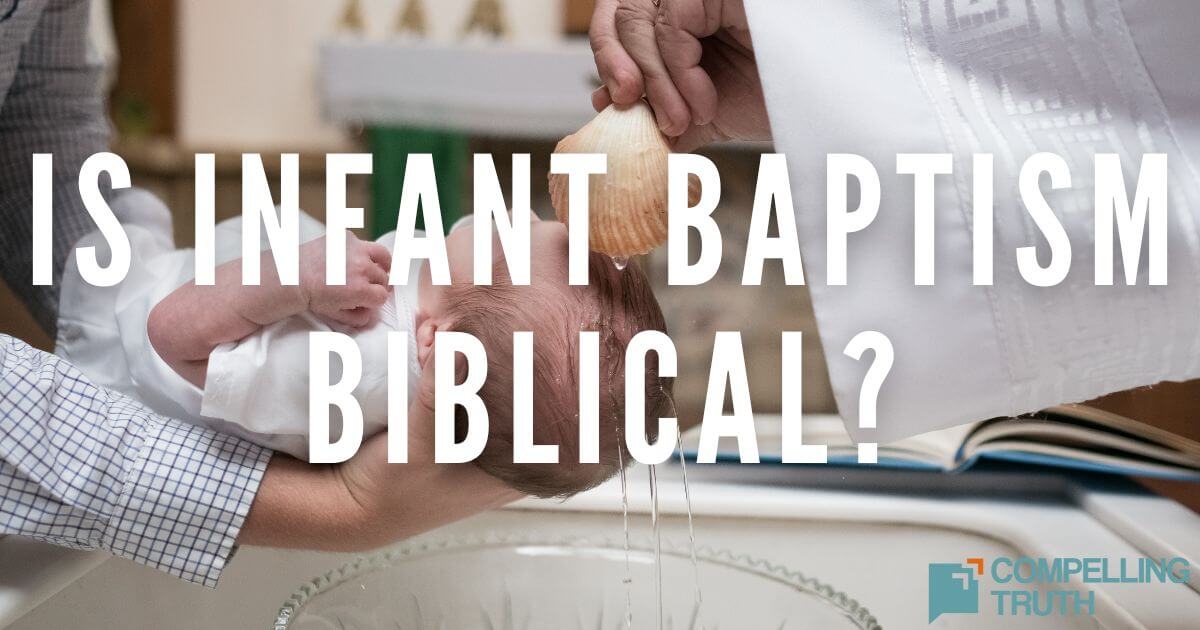Many churches have rules regarding when or how a child is baptized or is allowed to take part in Communion. What guidelines does the Bible give in these areas?
For baptism, the Bible simply teaches it is to take place following a person's belief in Jesus Christ as Savior. This means that even if a person was baptized as an infant or at an earlier time, he or she should be baptized following salvation.
The practice of infant baptism did not take place in the New Testament but was later developed in the church to "christen" or commit a child to the Lord. While it may not be specifically wrong to baptize an infant, this is an extra-biblical tradition. Those who come to faith in Christ are still encouraged to receive believer's baptism. The biblical pattern of baptism was one of immersion in water.
How young should a child be baptized? Since no child baptisms were clearly shown in the Bible, the only guideline is that it takes place after salvation. Some children may understand the gospel message enough to express salvation at the age of five or six while others will be teenagers before being able to understand well enough to make a decision to follow Jesus.
Some churches make guidelines to not baptize children until the age of 12 or 13 to refrain from baptizing children too young to understand the decision they are making. Other churches instead require a children's baptism class to help children understand their decision to follow Jesus and the importance of baptism.
Another important aspect is that parents should be involved in the decision of a child's baptism as much as possible. Baptism of a child would not typically be conducted without the consent of a parent, since the parent is responsible for the spiritual upbringing of a child.
For Communion, the biblical precedent seems to be that a person should only partake in Communion or the Lord's Supper after baptism. Why? Every known occasion in the New Testament of people taking the Lord's Supper involved baptized believers. Further, baptism is designed as the one-time public commitment that a person is a follower of Jesus. Communion then becomes the ongoing, repeated ordinance to remember the death of Christ on one's behalf.
Rather than at a specific age, baptism should take place when a person understands salvation and is choosing baptism in order to identify himself or herself as a believer in Jesus. For children, it is important that parents and church leadership be involved in the decision to ensure the child's understanding. Similarly, people should only take Communion when they understand salvation and the significance of Communion. Once again, parental guidance and church leadership can be useful for introducing children to Communion. And, as with adults, children who take Communion should examine themselves and take it in a worthy manner: "Let a person examine himself, then, and so eat of the bread and drink of the cup" (1 Corinthians 11:28).
For baptism, the Bible simply teaches it is to take place following a person's belief in Jesus Christ as Savior. This means that even if a person was baptized as an infant or at an earlier time, he or she should be baptized following salvation.
The practice of infant baptism did not take place in the New Testament but was later developed in the church to "christen" or commit a child to the Lord. While it may not be specifically wrong to baptize an infant, this is an extra-biblical tradition. Those who come to faith in Christ are still encouraged to receive believer's baptism. The biblical pattern of baptism was one of immersion in water.
How young should a child be baptized? Since no child baptisms were clearly shown in the Bible, the only guideline is that it takes place after salvation. Some children may understand the gospel message enough to express salvation at the age of five or six while others will be teenagers before being able to understand well enough to make a decision to follow Jesus.
Some churches make guidelines to not baptize children until the age of 12 or 13 to refrain from baptizing children too young to understand the decision they are making. Other churches instead require a children's baptism class to help children understand their decision to follow Jesus and the importance of baptism.
Another important aspect is that parents should be involved in the decision of a child's baptism as much as possible. Baptism of a child would not typically be conducted without the consent of a parent, since the parent is responsible for the spiritual upbringing of a child.
For Communion, the biblical precedent seems to be that a person should only partake in Communion or the Lord's Supper after baptism. Why? Every known occasion in the New Testament of people taking the Lord's Supper involved baptized believers. Further, baptism is designed as the one-time public commitment that a person is a follower of Jesus. Communion then becomes the ongoing, repeated ordinance to remember the death of Christ on one's behalf.
Rather than at a specific age, baptism should take place when a person understands salvation and is choosing baptism in order to identify himself or herself as a believer in Jesus. For children, it is important that parents and church leadership be involved in the decision to ensure the child's understanding. Similarly, people should only take Communion when they understand salvation and the significance of Communion. Once again, parental guidance and church leadership can be useful for introducing children to Communion. And, as with adults, children who take Communion should examine themselves and take it in a worthy manner: "Let a person examine himself, then, and so eat of the bread and drink of the cup" (1 Corinthians 11:28).



